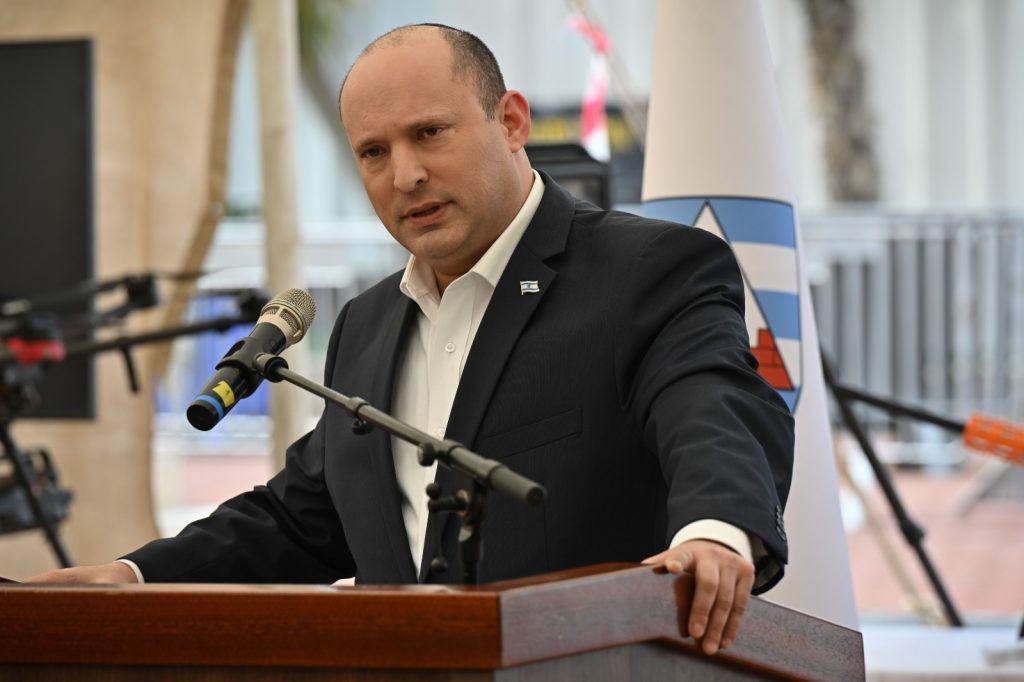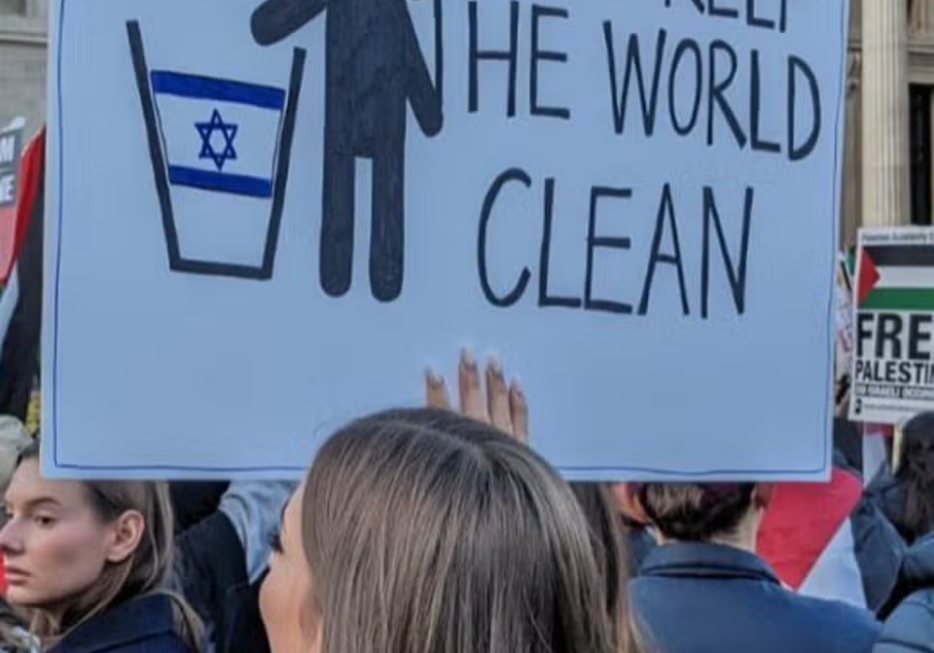Australia/Israel Review
Israel’s improbable Coalition on a knife’s edge
May 3, 2022 | Amotz Asa-El

Hardly ten months since its unexpected emergence, the most improbable coalition Israel has ever seen looks ready to dissolve.
The political bundle of eight parties ranging from an Islamist preacher to West Bank settlers lost its razor-thin parliamentary majority when coalition chairperson Idit Silman bolted the coalition on April 6. As of this writing, both Prime Minister Naftali Bennett’s Government and the Likud-led opposition each wield exactly 60 lawmakers.
A modern-Orthodox health administrator and mother of three, Silman was elected as part of Bennett’s Yamina (“Rightward”) party, a collection of religious and secular nationalists who lacked a religious agenda other than the commitment to both respect freedom of religion and uphold Jewish tradition.
Even so, Silman said she felt the Government was doing “harm to [Israel’s] Jewish identity” after Health Minister Nitsan Horovitz of the secularist Meretz faction, acting in response to a court decision, ordered hospitals not to forbid visitors from entering during Passover with bread and other foods forbidden under Jewish law during the seven days of the holiday.

The Defector: Departing Israeli coalition chairperson Idit Silman (Image: Wikipedia)
Pundits questioned whether this was Silman’s real motivation, as her defection was reportedly obtained in return for a Likud promise to make her health minister in an alternative, right-wing government. Silman did not deny these reports. Some believe Silman was overwhelmed by the pressure placed on her by activists who showed up regularly outside her home in Rehovot with bullhorns and called her “traitor” and other slurs.
Whatever drove her decision, Silman’s move seems irreversible.
Meanwhile, the coalition came under additional pressure when its Arab component, the Ra’am faction, facing Arab community anger over Israeli police handling of Muslim rioters on Jerusalem’s Temple Mount during the Passover and Ramadan holidays, decided to suspend its membership in the coalition until the end of the Knesset’s spring break on May 9th.
This suspension is largely symbolic, since there are no legislative votes during the Knesset’s spring break, but it both underscores and aggravates the fragility of an already fraying coalition.
The coalition crisis threatens to return Israel to the political paralysis that gave rise to the improbable Bennett-led Government in the first place.
While the opposition currently does not have a majority for a no-confidence vote, under Israeli law, if the Government does not pass a new budget by March 2023, it automatically falls and new elections are called.
Lacking a majority, the Government will be unable to pass another biennial budget, which under Israeli law requires the votes of at least 61 lawmakers. With little prospect of getting such an absolute majority, Bennett and Finance Minister Avigdor Lieberman may be able to potentially make do with a one-year budget, which the law allows to pass with a simple majority.
However, even achieving that may require getting backing from at least one lawmaker from the current opposition. The only politically available candidates right now to supply that backing appear to be the radicals from the mostly-Arab Joint List. Such deals are not unprecedented, but they are very unlikely to keep the Government alive for the remaining three years of the Knesset’s four-year term.
What goes for the budgetary process goes also for all other legislation. As a stopgap policy, Bennett intends to limit the Government’s legislative initiatives, and to table only bills that can be backed by parts of the opposition.
Having said all this, an early election is not necessarily imminent. The Knesset can initiate an early election only with a 61-member majority. For the government to be replaced by the existing Knesset without a general election, the opposition needs to produce an alternative candidate backed by at least 61 lawmakers. This looks extremely unlikely, since the opposition’s 60 seats include six from the aforementioned Joint List, and there is no chance they would back a Likud led alternative government.
The opposition has been trying feverishly to recruit more defectors like Silman, but these efforts have so far not succeeded. This means that Israeli politics appears to be returning to the state of limbo that produced four inconclusive elections over the past three years.
All polls suggest that if an election were held today, little would change, since voter movements seem to be almost exclusively to alternative parties within the same political bloc, and seldom between the two major blocs.
The roots of this ongoing crisis are both personal and partisan. The personal aspects concern current Opposition Leader and former PM Binyamin Netanyahu’s legal situation and political status.
Netanyahu is currently in the middle of a trial on charges of bribery, fraud, and breach of trust over three different cases. Despite this, he enjoys the firm backing of about one quarter of the electorate – which is nearly twice as much as any other Israeli political leader. That is why his Likud party has been unwilling to replace him as party head.

An end to Israel’s multi-year political statemate seems likely only if there is some sort of resolution to the legal status of former PM Binyamin Netanyahu (Image: UPI/Alamy Live News)
At the same time, Netanyahu is deeply unacceptable to an even larger part of the electorate. This includes many right-wing voters, represented by three parties in the current governing coalition.
Of those three, Justice Minister Gideon Saar, whose New Hope party won 5% of the vote, is so staunchly anti-Netanyahu that he vowed not to sit in any government headed by the former PM, saying he must step aside due to his indictments.
The coalition’s two other right-wing parties, Bennett’s Yamina and Lieberman’s Yisrael Beitenu (“Israel is our Home”) made no such pledges, and their leaders have in fact avoided any statements about Netanyahu’s legal situation.
However, there is considerable bad blood between each of them and Netanyahu as well, harking back to the years both Bennett and Lieberman spent working with him, first as aides, then as ministers in his many cabinets. The likelihood of either of the two returning to a Netanyahu-led coalition is therefore low.
One exception in this regard may be Bennett’s Yamina party colleague and long-time ally Interior Minister Ayelet Shaked. Charismatic, opinionated, and ideological, the 45-year-old electrical engineer has avoided clashing with either Netanyahu or Likud, and many believe her long-term aim is to return to the Likud, where she first entered politics, and become its leader.
Whatever such a plan’s prospects, the partisan situation right now is such that an early election sometime next year, or perhaps even earlier, is now overwhelmingly likely. This is despite the fact that no Israeli leader has put forward a credible formula for ending the political stalemate Israel has grappled with for three years.
Barring the unpredictable effect of an external shock, change seems possible only as a result of some kind of change in Netanyahu’s situation. This can happen in one of three ways.
The first is that Netanyahu’s ongoing trial ends quickly, and he emerges fully cleared. In such a scenario, he would likely easily win a return to the premiership, rallying behind him the entire Right, and, if he so wishes, also gaining support from parts of the Israeli Centre as well.
The second scenario is that Netanyahu is convicted, or accepts a plea bargain, and is left no political choice but to vacate the political stage. In such a case, Likud will hold a primary election to elect a successor. There are already at least seven candidates to replace him as head of Likud, all incumbent lawmakers.
Any of these would-be successors would likely be in a position to put an end to the political limbo, not because of his or her abilities, but because, without Netanyahu’s legal troubles, the anti-Netanyahu segments of the Right would not view him or her as similarly disqualified from the top job.
Moreover, if led by someone else, Likud might be in a position to gain coalition support from centrist parties, like Foreign Minister Yair Lapid’s Yesh Atid (“There is a Future”) and Defence Minister Benny Gantz’s Blue and White, both of which currently refuse to join a Netanyahu-led government.
Another scenario is that, if a stalemate produces another early election which then produces another hung parliament, Likud might potentially replace Netanyahu regardless of what happens to him in court. “You have been our leader since last century,” they may then tell the 72-year-old statesman who was prime minister for an aggregate 15 years, “it’s time to retire.”
Tags: Israel, Naftali Bennett






